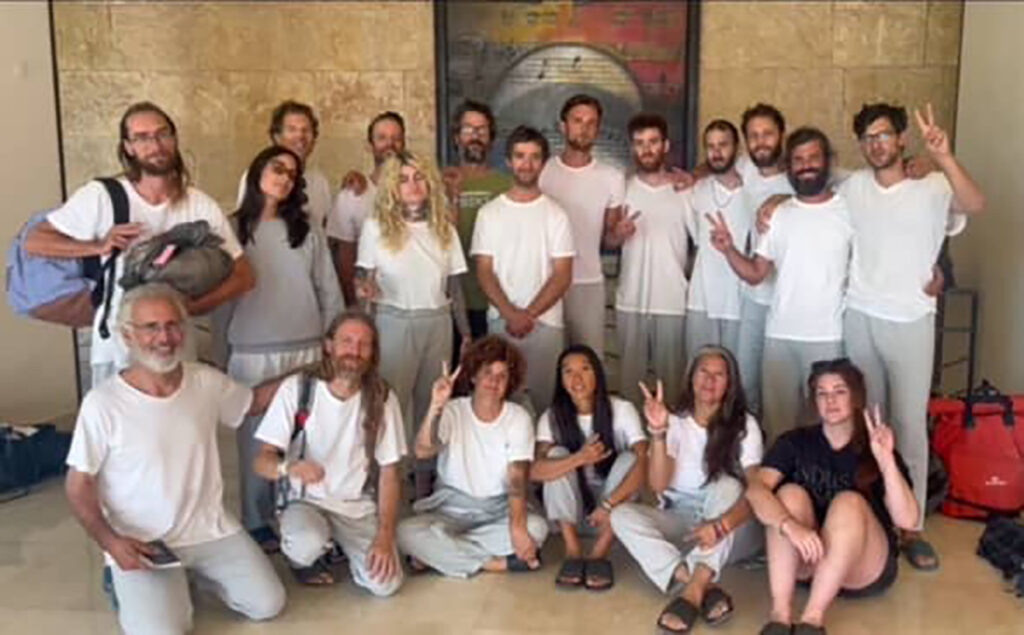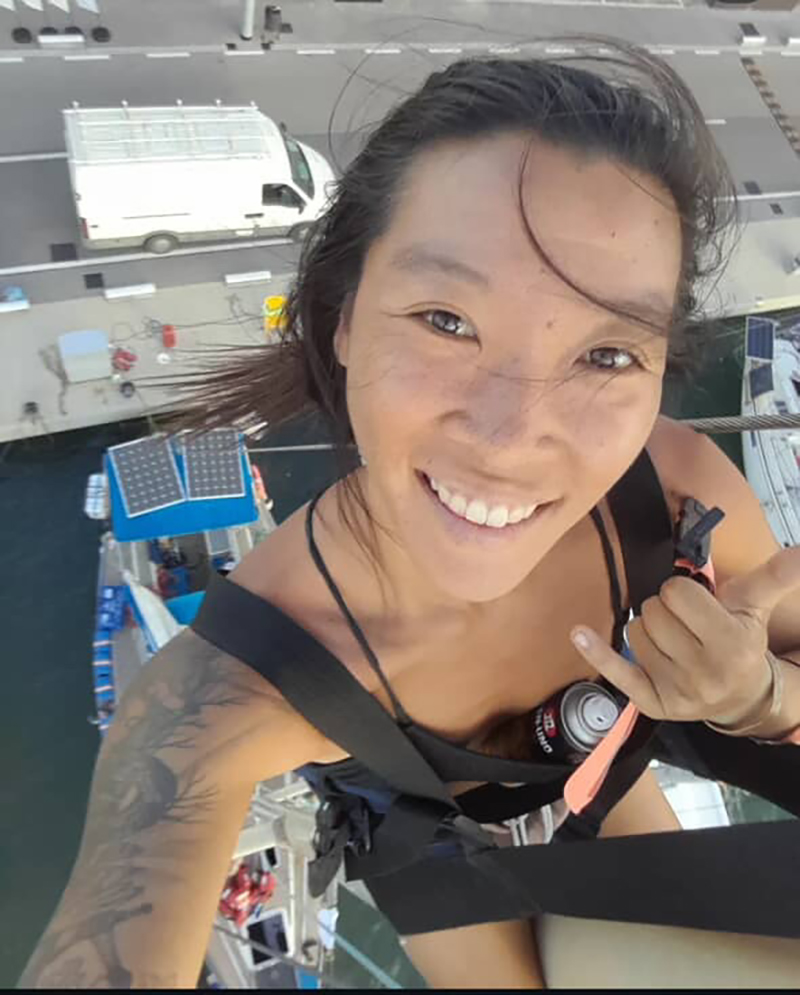By Nia Wong
NORTHWEST ASIAN WEEKLY
ORCAS ISLAND, Wash. – Sailing through the Mediterranean Sea in the early days of October, it wasn’t fear that had Jas Ikeda gripping the wheel of Sirius, a 200,000-ton vessel that would become part of the largest civilian-led convoy to date. Rather, it was the hope of handing aid boxes to Palestinians subjected to years of starvation, bombings, and what a United Nation commission would declare a genocide under Israel.
“It was communicated to us that, because of the dangers, we wouldn’t quite step foot on the shores of Gaza, but that there would be some Palestinians with dinghies on that side, and that we would be able to hand the aid to them once we got closer to the shore,” said Ikeda.

“When the governments aren’t listening, it’s up to the civilians to take action,” said Ikeda.
Ikeda lent her extensive maritime skills as a deckhand on board several boats in the Flotilla, calling the movement a “beautiful experience” with fellow activists from around the world, including Palestine.
“A group of Palestinians were helping out with the flotilla, and they’re so grateful that we’re caring enough to, like, go on the flotilla and for them, and then some of our land crew were also Palestinian, and the resilience that these humans have. It’s just really profound, because they have had to go through so much and they are so grateful,” said Ikeda.

“It was illegal that they boarded us because we were in international waters,” said Ikeda. “We got kidnapped and abducted, then we were brought on land, and even though it was so called Israel’s prison, it is still occupied Palestinian territory.”
The prison that Ikeda is talking about is Ktzi’ot, just north of the Egyptian border, and while she has plenty to share about her time in Israel’s largest detention facility, she frames it with this reminder.
“Whatever they’ve done to us, for Palestinians, it’s 1,000 times worse. It’s quite graphic, and the stories that I’ve heard are just super brutal and that the cease fire hasn’t worked,” said Ikeda. “Hundreds and hundreds more of Palestinians have been murdered.”
Palestinian deaths are estimated to be between 60-70,000 and a United Nations Commission of Inquiry report released in September details reported human rights atrocities, accusing Israel of committing genocidal acts, including killing members of a group; causing serious bodily harm or mental harm to members of a group; deliberately inflicting on the group conditions of life calculated to bring about its physical destruction in whole or in part; and imposing measures intended to prevent births within the group.
While Israel rejected the report, Ikeda says her experience with Global Sumud reinforces her belief that more can and must be done to overcome atrocities in Palestine and other parts of the world.
Though Ikeda didn’t fulfill her wish of personally handing aid boxes to Palestinians, she says everyday civilians like herself can still make a difference. For example, Ikeda uses the No Thanks app, which allows users to scan barcodes to see if products have ties to Israel.
“I think that we underestimate our own power, and that the systems that are oppressing us are using our own power against us, and something as simple as choosing a different brand of granola or whatever it is in the store, can start to make that shift,” said Ikeda.
After spending several days in an Israeli prison, Ikeda returned to her current home in Orcas Island in mid-October and is set to deliver a public presentation.
You can hear more from Ikeda at her community potluck and presentation at the Seaview Theater on Nov. 12 from 6-9 p.m.
Nia can be reached at newstips@nwasianweekly.com.

